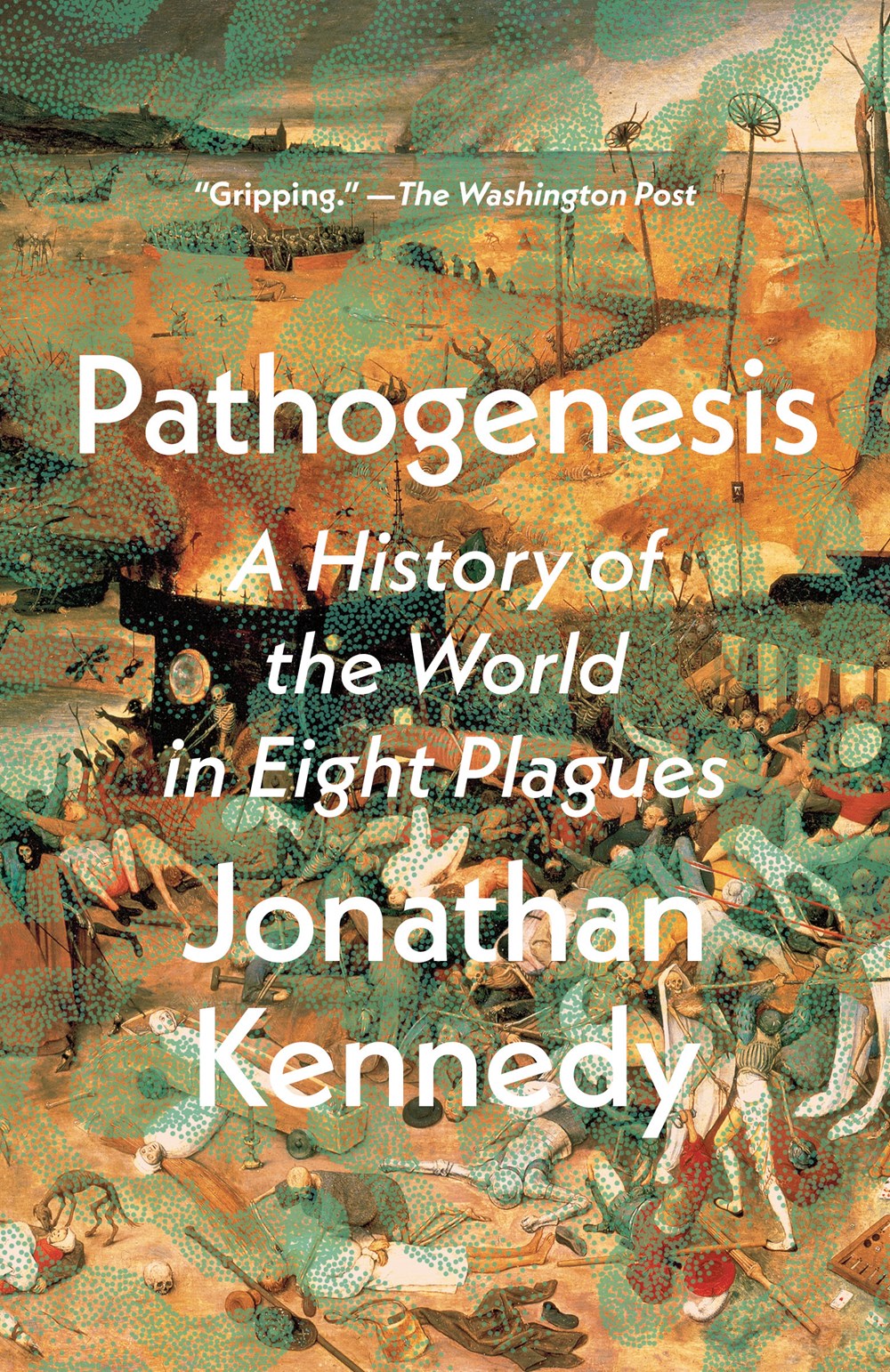1
/
of
1
Pathogenesis : A History of the World in Eight Plagues
Pathogenesis : A History of the World in Eight Plagues
Jonathan Kennedy
On Sale Date: March 12, 2024
Regular price
$20.00 USD
Regular price
Sale price
$20.00 USD
Unit price
/
per
Couldn't load pickup availability
A “gripping” (The Washington Post) account of how the major transformations in history—from the rise of Homo sapiens to the birth of capitalism—have been shaped not by humans but by germs.
“Superbly written. Kennedy seamlessly weaves together scientific and historical research, and his confident authorial voice is sure to please readers of Yuval Noah Harari or Rutger Bregman.” —The Times (U.K.)
According to the accepted narrative of progress, humans have thrived thanks to their brains and brawn, collectively bending the arc of history. But in this "compelling" (The Atlantic) book, Professor Jonathan Kennedy argues that it is the humble microbe that wins wars and topples empires.
Pathogenesis takes us through sixty thousand years of history, exploring eight major outbreaks of infectious disease that have made the modern world. Bacteria and viruses were protagonists in the demise of the Neanderthals, the growth of Islam, the transition from feudalism to capitalism, the devastation wrought by European colonialism, and the evolution of the United States from an imperial backwater to a global superpower. By placing disease at the center of his wide-ranging history of humankind, Kennedy challenges some of the most fundamental assumptions about our collective past—and urges us to view the current moment as another disease-driven inflection point that will change the course of history.
“Superbly written. Kennedy seamlessly weaves together scientific and historical research, and his confident authorial voice is sure to please readers of Yuval Noah Harari or Rutger Bregman.” —The Times (U.K.)
According to the accepted narrative of progress, humans have thrived thanks to their brains and brawn, collectively bending the arc of history. But in this "compelling" (The Atlantic) book, Professor Jonathan Kennedy argues that it is the humble microbe that wins wars and topples empires.
Pathogenesis takes us through sixty thousand years of history, exploring eight major outbreaks of infectious disease that have made the modern world. Bacteria and viruses were protagonists in the demise of the Neanderthals, the growth of Islam, the transition from feudalism to capitalism, the devastation wrought by European colonialism, and the evolution of the United States from an imperial backwater to a global superpower. By placing disease at the center of his wide-ranging history of humankind, Kennedy challenges some of the most fundamental assumptions about our collective past—and urges us to view the current moment as another disease-driven inflection point that will change the course of history.
Share


